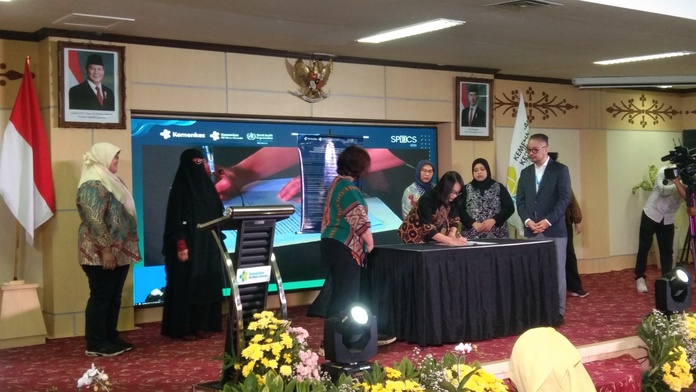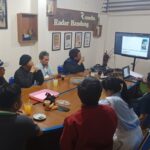Cicendo Eye Hospital (RSM) in Bandung hosted the 2025 World Sight Day commemoration held in Hall C, 4th Floor. The 2025 commemoration carries the major theme of the Joint Commitment Declaration to Improve Access to Affordable and Equitable Vision Health Services and Assistive Products, Indonesia SPECS 2030.
The Director stated that vision impairment and blindness remain major challenges in Indonesia. Based on data from the Rapid Assessment of Avoidable Blindness (RAAB) 2014-2016, the blindness rate in Indonesia is still at 3 percent, the highest in Southeast Asia.
“One of the main causes is uncorrected refractive errors. This condition can affect all age groups and has a significant impact on productivity, especially in children as it can disrupt their learning process,” it was explained.
It was explained that the government has developed the 2025-2030 Vision Health Effort Roadmap as a national strategy. This step forms the basis for expanding refraction services and equalizing access to vision aids such as glasses, with the support of cross-sectoral collaboration.
“There is still a gap between the number of people with vision impairment and the availability of aids. Through Indonesia SPECS 2030, the government aims to reduce this gap through collaboration across various sectors,” it was added.
Meanwhile, the Head of the Dental and Sensory Health Working Team highlighted the threat to eye health in the digital era. This year’s global theme, Love Your Eyes, serves as an important reminder for the public to be more mindful of excessive gadget usage habits.
“RAAB 2016 data shows that 15.9 to 44 percent of school children in Indonesia experience refractive errors. High usage of digital devices risks worsening this condition,” it was stated.
Since February 2025, the Ministry of Health has intensified free eye examinations for the public, especially for school children. This step is part of the national effort to curb vision impairment from an early age.
The peak of the World Sight Day activities was marked by the signing of the Joint Commitment Declaration for Indonesia SPECS 2030, involving the Indonesian Ministry of Health, WHO, and various key stakeholders.
The Director of Non-Communicable Disease Control stated that this declaration is an important milestone for national efforts to strengthen vision services in Indonesia.
“Two out of three people in the world who need glasses have not received them. In Indonesia itself, around 15 million residents aged 50 and over experience vision impairment due to cataracts and refractive errors, while 44 percent of school children face similar problems,” it was explained.
The government aims to increase the coverage of refraction services to 40 percent by 2030. This initiative is part of the global WHO SPECS 2030 cooperation, which emphasizes quality and affordable vision care for all segments of society.
The WHO Representative for Indonesia praised the government’s steps, which are considered in line with Law Number 17 of 2023 concerning Health. It was assessed that the Community Eye Health or Integrated Community-Based Eye Care approach is an effective step to expand access to eye health services.
“Through this approach, Indonesia is committed to strengthening early screening, expanding public literacy, and improving access to affordable vision aids. WHO is ready to fully support Indonesia in achieving universal eye health coverage by 2030,” it was stated.
WHO’s support includes building Vision Centers in primary services, improving the competency of eye health workers, and implementing teleophthalmology to reach remote areas.
“If Indonesia successfully addresses refractive errors comprehensively, not only will eye health improve, but so will the quality of the national human resources. This SPECS 2030 program could even become a model for other countries in the region,” it was stated.






